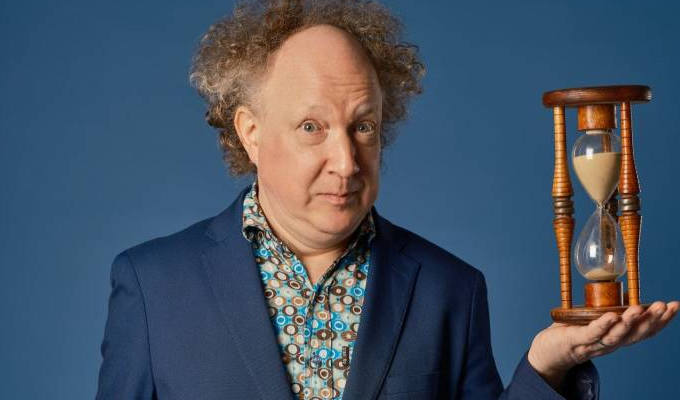
Michael Workman: Ave Loretta
Note: This review is from 2013
Review by Steve Bennett
Ave Loretta starts with the suicide of a young woman; and doesn’t get much more upbeat from there. But while there’s a bleak, haunting tone to Michael Workman’s eulogy, there’s also an insightful, often uncomfortable, wit that invites the audience to laugh darkly at the faces of depression and mortality.
An ambitious, emotive piece of storytelling, this is in the spirit of Daniel Kitson’s shows, but with hopelessness in the place of romantic optimism. Kitson’s a lofty enough role model to aspire to – and Workman inevitably falls short – never mind handicapping yourself with a sombreness designed to make the audience uncomfortable
Workman is clearly a writer using comedy as an outlet. When he attempts a more relaxed stand-up, it doesn’t quite work, but when the tale is told through his rich, dense prose, the imagery it conjures is darkly beautiful.
The sentimental, introspective story is of a trip back to his childhood suburban home to bid farewell to his friend and muse, a free spirit who didn’t belong in that graveyard of enthusiasm, and how he could relate to the ‘black dog’ that so troubled her. He – or at least the character of the narrator – was a boy who’d use the word ‘melancholy’ when he was eight... and who flunked junior art classes because he created art, i.e. an expression of his innermost emotions, when they just wanted him to do what they are told.
He raises interesting points about the ‘everyone’s special’ message of modern education, as opposed to previous generations merely being primed for a lifetime of drudgery (the alarm clock is the ‘starting gun for an apathy marathon’ in his florid description). That, he argues, surely leads to heightened expectations life cannot possibly fulfil. He goes on to argue that depression is also a perfectly valid response to the calamitous state of the world... it’s the rest of us who prance around in denial of the injustices who are wrong.
If all this sounds a bit too heavy for the ha-has... well, it can be. But while the show can be thought-provoking, the revelation of this absurd state of society appeals to Workman’s warped sense of humour, so there are laughs to be had as you contemplate the futilities and injustices of life. Many more come from the complex yet evocative metaphors he uses – a bit self-indulgently, perhaps, but nevertheless effective.
This isn’t the most accessible, nor funniest, show at the comedy festival, and falls more snugly into a storytelling genre that a straightforward stand-up one. But Workman’s choice not to go down an easy route is laudable, and there’s food for thought here, as well as nourishment for the funnybone.
Review date: 3 Apr 2013
Reviewed by: Steve Bennett
Reviewed at:
Melbourne International Comedy Festival






